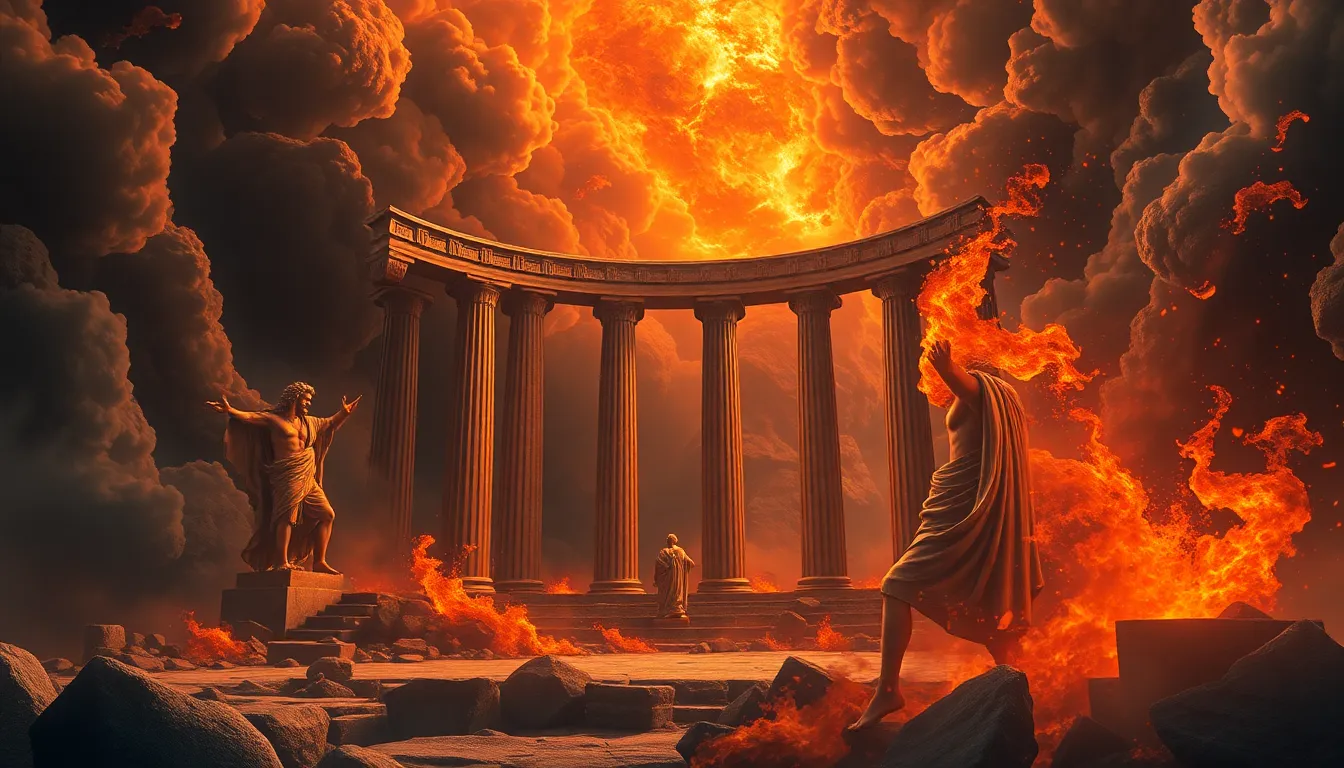The Enigma of Mortal Life: Lessons from Greek Mythology
I. Introduction
Greek mythology offers a rich tapestry of narratives that delve into the complexities of human existence. Through tales of gods, heroes, and mortals, these myths explore profound themes surrounding life, death, and the human condition. By examining these stories, we gain insights into our own mortality and the universal questions that arise from it.
The significance of exploring mortality through mythological narratives cannot be overstated. Greek myths serve not only as entertainment but also as a means of grappling with the uncertainties of life and the inevitability of death. They provide a framework through which we can understand our place in the world and the forces that shape our destinies.
II. The Nature of Mortality in Greek Thought
A. The Greek perspective on life and death
In ancient Greece, the concepts of life and death were intricately linked to the beliefs surrounding the afterlife and the gods. Mortality was viewed as an inherent aspect of human existence, with a clear recognition that all beings are destined to die. This acceptance of mortality fostered a sense of urgency in living a meaningful life.
B. Key philosophical themes related to mortality
- Transience: The fleeting nature of life was a central theme, reminding individuals to cherish their time.
- Legacy: The desire for remembrance and the impact of one’s actions were paramount in the quest for immortality.
- Fate vs. Free Will: The tension between predetermined fate and individual choice was a recurring philosophical debate.
III. Iconic Myths Illustrating the Human Condition
A. The tale of Prometheus and the gift of fire
Prometheus, a Titan, defied Zeus by stealing fire from the heavens and giving it to humanity. This act of rebellion symbolizes the quest for knowledge and enlightenment, as well as the struggle against divine authority. Prometheus’s punishment—being bound to a rock where an eagle would eat his liver daily—underscores the consequences of challenging the gods.
B. The story of Sisyphus and the struggle for meaning
Sisyphus, the cunning king of Corinth, was condemned to eternally roll a boulder uphill, only for it to roll back down each time he reached the summit. This myth encapsulates the absurdity of human existence and the relentless pursuit of meaning amidst futility. It invites introspection on how one approaches life’s challenges and the significance of perseverance.
IV. The Role of Fate and Free Will
A. Understanding the concept of fate in Greek mythology
Fate, represented by the Moirai or Fates, was an inescapable force in Greek mythology. It dictated the life paths of both mortals and gods alike, suggesting a predetermined order to the cosmos. However, the interplay between fate and free will raises intriguing questions about human agency.
B. Examples of characters navigating fate and choice
- Oedipus: Despite attempts to avoid his fate, Oedipus ultimately fulfills the prophecy of killing his father and marrying his mother.
- Achilles: Faced with the choice of a long, uneventful life or a short, glorious one, Achilles chooses the latter, highlighting the human desire for significance.
V. The Influence of the Gods on Mortal Lives
A. The relationship between gods and humans in myths
The gods of Greek mythology were deeply intertwined with the lives of mortals, often intervening in human affairs. Their actions could be benevolent or malevolent, reflecting the capricious nature of divine influence. This relationship illustrates the precarious balance between divine power and human vulnerability.
B. Case studies: Athena, Apollo, and their interactions with mortals
- Athena: The goddess of wisdom often aided heroes like Odysseus, guiding them with intelligence and strategy.
- Apollo: As the god of prophecy and healing, Apollo interacted with mortals to impart knowledge and dispense justice, emphasizing the importance of moral integrity.
VI. Lessons on Virtue and Vice
A. The moral lessons derived from mythological stories
Greek myths are imbued with moral teachings that reflect the values of ancient Greek society. These narratives often highlight the virtues of courage, wisdom, and justice, while also serving as cautionary tales against the vices of greed, pride, and hubris.
B. The consequences of hubris and the value of humility
- Hubris: Many myths illustrate the downfall of characters who exhibit excessive pride, such as Narcissus and Icarus, who disregarded limits.
- Humility: Conversely, figures who demonstrate humility, like Penelope, are often rewarded, showing that virtue leads to fulfillment.
VII. The Quest for Immortality and Legacy
A. Myths surrounding eternal life and the hero’s journey
The quest for immortality is a recurring theme in Greek mythology, often embodied in the journeys of heroes. Figures such as Heracles and Perseus seek glory and eternal remembrance through their legendary exploits, revealing the human desire to transcend mortality.
B. The human desire for remembrance and its implications
The longing to be remembered after death drives many characters in Greek myths. This desire for legacy prompts reflection on the impact of one’s life and the importance of leaving a meaningful mark on the world.
VIII. Conclusion
Greek mythology offers profound insights into the nature of mortal life, exploring themes of mortality, fate, virtue, and legacy. Through its iconic myths, we learn valuable lessons about the human condition and the complexities of existence. The enduring impact of these narratives continues to resonate in contemporary discussions about life and the search for meaning, reminding us that the questions posed by our ancestors remain relevant today.




